ORF RSO Symphony Vienna
Mo | Tu | We | Th | Fr | Sa | Su |
Program and cast
SUNDAY, MAY 18, 2025 - 7:30 p.m
ORF RSO Vienna
Singing club of the Society of Music Friends in Vienna
Marin Alsop, conductor
Dana Marbach, soprano
Annette Schönmüller, mezzo-soprano
Adrian Eröd, baritone
Wolfgang Kogert, organ
PROGRAM
ALEXANDER ZEMLINSKY
13th Psalm, op. 24
ERICH ZEISL
Requiem Ebraico. The 92nd Psalm for soloists, mixed choir, organ and orchestra
– Intermission –
GUSTAV MAHLER
Symphony No. 1 in D major
Ends approximately 9:45 p.m
THURSDAY, JUNE 19, 2025 - 7:30 p.m
ORF RSO Vienna
PROGRAM
Orchestra concert - diploma examination in conducting of the mdw
Ends approximately 10:00 p.m
Saturday, October 11, 2025
ORF RSO Vienna
Singverein of the Society of Friends of Music in Vienna
Markus Poschner, Conductor
Robert Kovács, Organ
Paul Schweinester, Tenor
Program
Lili Boulanger
Vieille prière bouddhique for Tenor, Choir, and Orchestra
Psalm 130 "Du fond de l'abîme", for Alto Solo, Choir, Organ, and Orchestra
Intermission
Alexander Zemlinsky
The Mermaid. Symphonic Poem after a Fairy Tale by Hans Christian Andersen
Friday, February 27, 2026
ORF RSO Vienna
Marin Alsop, Conductor
Bruce Liu, Piano
Program
Friedrich Cerha
Three Movements for Orchestra
Frédéric Chopin
Piano Concerto No. 1 in E minor, Op. 11
Intermission
Sergei Prokofiev
Romeo and Juliet. Excerpts from the Ballet Suites, Op. 64a, 64b, and 101
Friday, March 27, 2026
ORF RSO Vienna
Maxime Pascal, Conductor
Sofia Jernberg, Soprano
Keren Motseri, Soprano
Program
Claude Debussy
Prélude à l’après-midi d’un faune. Eclogue for Orchestra after Mallarmé ("The Afternoon of a Faun")
Chaya Czernowin
NO! (Austrian Premiere)
Intermission
Nikolai Rimsky-Korsakov
Scheherazade. Symphonic Suite from "One Thousand and One Nights", Op. 35
Saturday, April 11, 2026
ORF RSO Vienna
Singverein of the Society of Friends of Music in Vienna
Elim Chan, Conductor
Alexander Vinogradov, Bass
Program
Dmitri Shostakovich
Hamlet, Op. 116; Excerpts from the Film Score
Hector Berlioz
Tristia, Op. 18
Intermission
Dmitri Shostakovich
Symphony No. 13, Op. 113, "Babi Yar"
Friday, May 22, 2026
ORF RSO Vienna
Thomas Adès, Conductor
Nicolas Altstaedt, Cello
Dénes Várjon, Piano
Program
Charles Edward Ives
The Unanswered Question
György Kurtág
Double Concerto for Piano, Cello, and Two Chamber Ensembles, Op. 27/2
Intermission
Thomas Adès
Lieux Retrouvés (Version for Cello and Orchestra)
Pyotr Ilyich Tchaikovsky
Francesca da Rimini. Symphonic Poem for Orchestra, Op. 32 (Fantasy after Dante)
Thursday, 25 June 2026
ORF RSO Vienna
Program
Orchestra Concert – Conducting Diploma Examination of the mdw
The conductors and the program will be announced at a later date.
Musikverein Golden Hall
This building is located on Dumbastraße/Bösendorferstraße behind the Hotel Imperial near the Ringstraße boulevard and the Wien River, between Bösendorferstraße and Karlsplatz. However, since Bösendorferstraße is a relatively small street, the building is better known as being between Karlsplatz and Kärntner Ring (part of Ringstraße loop). It was erected as the new concert hall run by the Gesellschaft der Musikfreunde, on a piece of land provided by Emperor Franz Joseph I of Austria in 1863. The plans were designed by Danish architect Theophil Hansen in the Neoclassical style of an ancient Greek temple, including a concert hall as well as a smaller chamber music hall. The building was inaugurated on 6 January, 1870. A major donor was Nikolaus Dumba whose name the Austrian government gave to one of the streets surrounding the Musikverein.
Great Hall - Golden Hall
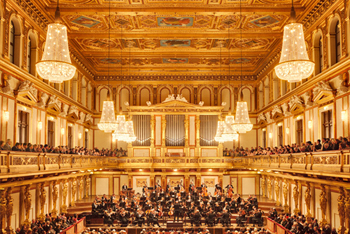 “As high as any expectations could be, they would still be exceeded by the first impression of the hall which displays an architectural beauty and a stylish splendour making it the only one of its kind.” This was the reaction of the press to the opening of the new Musikverein building and the first concert in the Großer Musikvereinssaal on 6 January 1870.
“As high as any expectations could be, they would still be exceeded by the first impression of the hall which displays an architectural beauty and a stylish splendour making it the only one of its kind.” This was the reaction of the press to the opening of the new Musikverein building and the first concert in the Großer Musikvereinssaal on 6 January 1870.
The impression must have been overwhelming – so overwhelming that Vienna’s leading critic, Eduard Hanslick, irritatingly brought up the question of whether this Großer Musikvereinssaal “was not too sparkling and magnificent for a concert hall”. “From all sides spring gold and colours.”
Brahms Hall
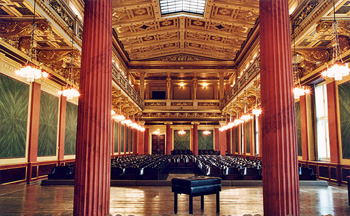 "In order not to promise too much it can be said that it has been made into the most beautiful, most magnificent, perfect example of a chamber concert hall that any of us knows in the world.” This was the reaction of a Vienna daily newspaper in October 1993 as the Brahms-Saal was presented to the public after extensive renovation work.
"In order not to promise too much it can be said that it has been made into the most beautiful, most magnificent, perfect example of a chamber concert hall that any of us knows in the world.” This was the reaction of a Vienna daily newspaper in October 1993 as the Brahms-Saal was presented to the public after extensive renovation work.
The surprise was perfect. It was a completely new hall. In contrast to the Grosse Musikvereinssaal, the Brahms-Saal had changed its appearance quite considerably over the years. When and how it acquired that slightly melancholy duskiness that was known to music lovers before 1993 cannot be precisely documented.
Glass Hall
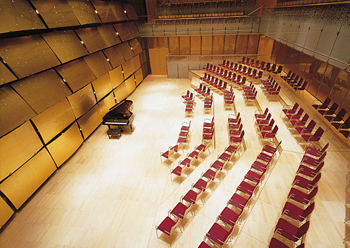 As a venue for events from concerts to luxury banquets, the Glass Hall / Magna Auditorium is not only the largest of the Musikverein's 4 new halls but also the most flexible in terms of usage.
As a venue for events from concerts to luxury banquets, the Glass Hall / Magna Auditorium is not only the largest of the Musikverein's 4 new halls but also the most flexible in terms of usage.
Hub podiums enable the smooth transformation of the concert hall into a conference centre, the cinema into a ballroom, or the stage into a catwalk. State-of-the-art equipment for sound, lighting, video and widescreen digital projection provide the ideal conditions for half-scenic productions.
The Glass Hall / Magna Auditorium was designed by the Viennese architect Wilhelm Holzbauer. With a height of 8 metres, the hall (including the gallery) can play host to up to 380 visitors.

 EN
EN DE
DE IT
IT FR
FR ES
ES RU
RU JP
JP RO
RO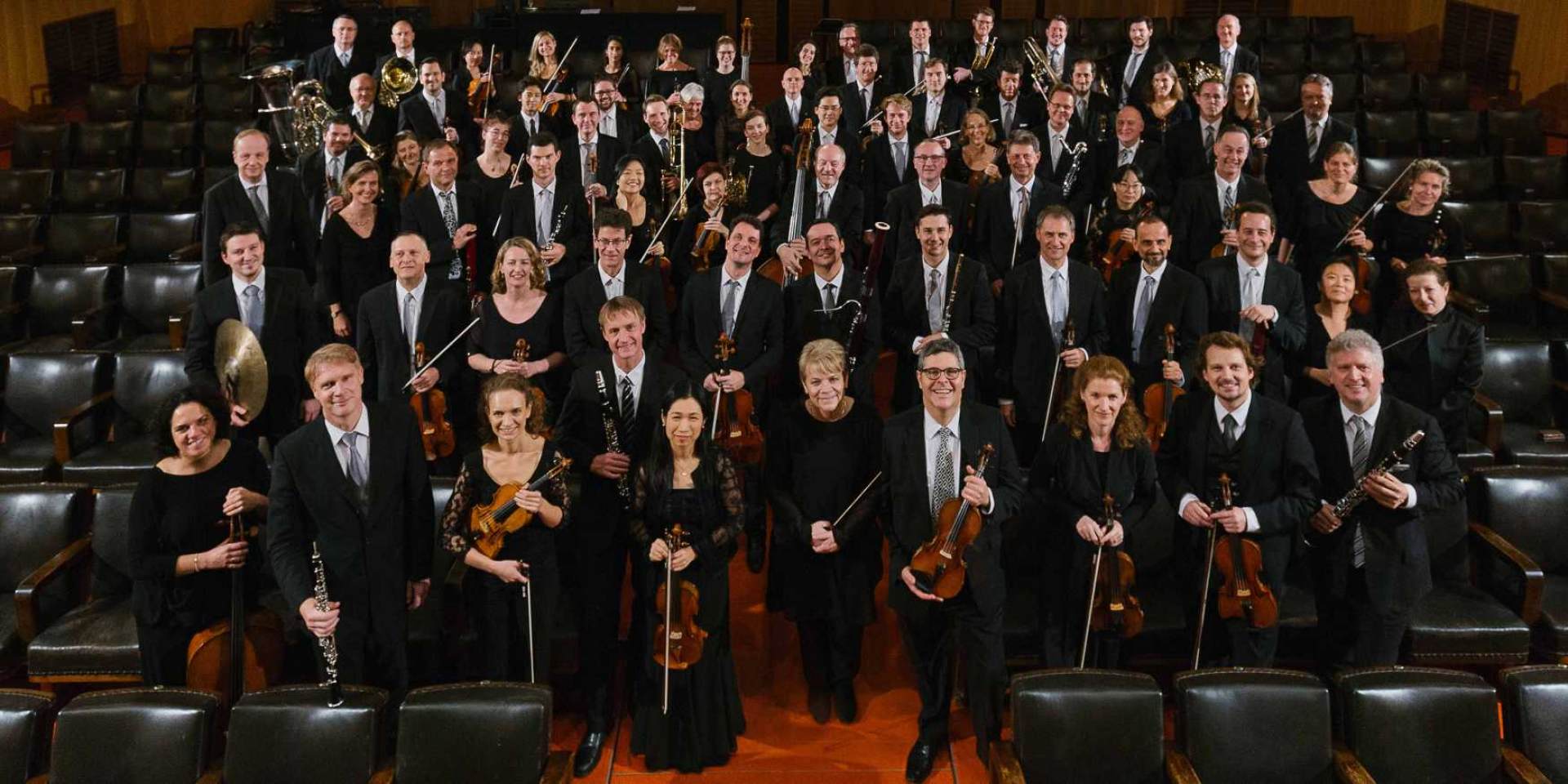
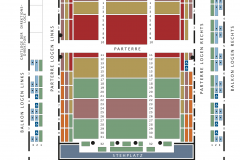 Seating plan
Seating plan 

